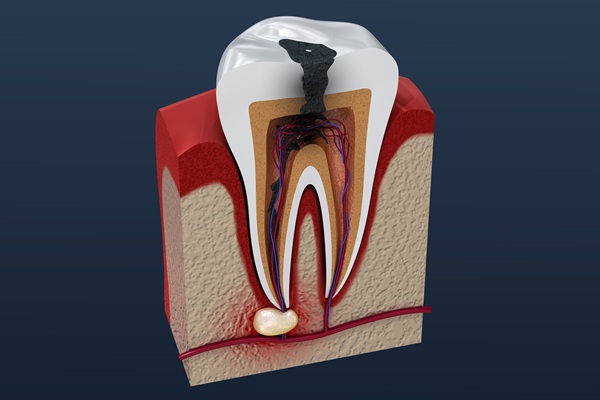Who Is a Good Candidate for Periodontal Laser Dentistry Treatments?

As the technology advances, so does the ability to solve the same dental problems with laser dentistry that in the past needed more invasive techniques. Dentists have been performing innovative surgeries to repair teeth, gums and other tissues in the mouth for decades, but the addition of periodontal laser dentistry has improved the results and reduced the recovery time for many patients. Some individuals have certain conditions that make this type of surgery a better choice than traditional surgical methods.
What makes a good laser dentistry candidate?
Good candidates for periodontal laser dentistry are patients who are experiencing periodontal disease and are looking for reduced recovery time with less need for pain management. Few conditions limit a patient's ability to receive laser dental treatments.
What conditions can laser dentistry treat?
The use of lasers in dentistry is not new, but methods and uses have improved over time. When a patient develops periodontal disease, which is a long-term infection and inflammation in the tissues surrounding the teeth, it often becomes necessary to remove the decaying tissue to try to salvage the teeth. Lasers are used in several different ways to treat periodontal infections and can be a faster way to remove the infection.
Most commonly, lasers are used to remove the damaged gum tissue and access the area around the roots to remove deep-seated plaque and pockets of bacterial infection. Once the infection is removed and the area is cleaned and smoothed to guard against future infections, the root and gums can heal through standard regeneration of the tissues.
What are the benefits of laser treatments?
Although laser dentistry is not the standard course of treatment for all conditions or even for every case of periodontal disease, many dentists now prefer the technique over traditional methods. Since laser surgery is typically not as invasive as traditional surgery, the pain and bleeding are reduced. Recovery time is also usually reduced due to an easier healing process. Due to the nature of lasers, the dental surgeon can narrow in on very specific tissues, allowing a more precise surgery that only affects the damaged tissues.
What patients are more likely to need periodontal surgery or laser therapy?
Some dental patients are at higher risk for developing periodontal disease, making them candidates for laser dentistry to correct the issue. Some patients are genetically predisposed to developing gum disease or have a medical condition that increases the risk, such as diabetes. Other patients have developed habits that lead to increased risk of disease and infection and can help control future infections by changing these habits:
- Poor dental hygiene practices
- Smoking or using other tobacco products
- Failure to get regular cleanings and dental care
Conclusion
Patients looking for treatment for periodontal disease often turn to laser dentistry for treatment. Most patients with gum infection and inflammation could benefit from using laser surgery over other techniques due to reduced treatment and recovery time.
Request an appointment here: https://lincroftvillagedental.com or call Lincroft Village Dental Care at (732) 842-5005 for an appointment in our Lincroft office.
Check out what others are saying about our services on Yelp: Read our Yelp reviews.
Recent Posts
There is no one-size-fits-all answer to whether a smile makeover or a single cosmetic dental treatment is better. A smile makeover includes multiple procedures to improve the overall shape, color, and alignment of a smile in a planned order. However, some individuals may only need one cosmetic dental treatment to achieve their smile goals. The…
Patients often search for root canal treatment when a tooth aches from deep decay, a crack, or inflamed pulp tissue. This therapy removes irritated nerve tissue, disinfects the canal space, and seals the tooth to prevent reinfection. By preserving the natural root, the procedure maintains bite balance and chewing strength. With careful planning, a restored…
Dental implant restoration is a reliable and long-lasting solution for replacing missing teeth. However, caring for and maintaining your dental implant from the start is important to get the best results. A consistent oral hygiene routine and regular dental visits are necessary to protect this investment in your long-term oral health.Brushing and flossing are essential…
An implant dentist uses artificial tooth roots to anchor a restoration for a lost tooth or teeth. By replacing the lost tooth roots, dental implants provide you the strength and stability needed to chew food and perform other oral functions. Also, they help to stimulate and preserve jawbone structure, stopping bone loss, and maintaining facial…


